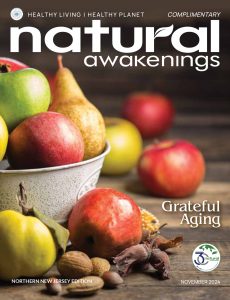Hormone Imbalance and Fatigue
Fatigue is not just an inevitable product of age; it is a telltale sign of hormonal imbalances for both men and women. Fatigue is the feeling of being tired, but also includes a much deeper state of lethargy over an extended period of time. Chronic fatigue fosters a range of additional symptoms, often typified by mood swings, insomnia, depression, anxiety and diminished adrenal function.
Many of the our important hormones are made from cholesterol, the mother of all fat molecules in the body and a cornerstone of normal cell function and mood regulation. Cholesterol is needed to maintain neurotransmitter and brain function, build brain and nerve tissue and nourish the immune system. Cholesterol is often a feared term, but unnecessarily so. We rarely hear about why it is so crucial to our wellness and how it can be instrumental to hormonal balance and the production of vitamin D. In its natural, unstressed state, the liver makes 75 percent of the cholesterol needed.
However, because of alcohol, pharmaceuticals, environmental and food toxins and unprocessed anger, the liver is among the most overstressed organs in the body. By depriving the body of cholesterol and eating carbs and sugar instead, metabolism goes into famine mode, causing the liver to overproduce cholesterol in order to make up the difference. Because cholesterol provides the crucial insulation around nerves that transmit electrical impulses and helps to digest fat-soluble vitamins like A, D, E and K, so it is no wonder that fatigue, lethargy, a waning capability for work and everyday activities, brain fog and more go hand-in-hand with hormone imbalances.
For men, fatigue is indicative of andropause, the male counterpart to menopause, and usually occurs between the ages of 45 and 55. Andropausal males not only exhibit low levels of testosterone overall, they will often become estrogen-dominant. Because testosterone plays an important role in energy production, diminished levels are a major cause of insomnia and sleep apnea, both of which contribute to fatigue in men.
For women, fatigue is especially prevalent during perimenopause and menopause, and this leads to the belief that fatigue is an inevitable consequence of age. Instead, low estrogen levels relative to the production of progesterone that are many times found in menopause can result in insomnia and night sweats, which contribute to fatigue. Diminished estrogen also causes irritability and mood swings in women. which furthers exhaustion. Too little progesterone is also a problem, because it not only decreases sex drive, but contributes to a proliferative, estrogen-dominant status.
Balancing hormones does not have to be an elusive scientific procedure filled with bioidentical replacements. We can start with root causes such as environmental toxins, liver congestion, neurotransmitters in the brain and reduction of the stress hormone cortisol, which because of its survival component, will trump the production of all other hormones. This is the most natural and effective, lasting approach. When hormones are balanced, many things fall into place. Symptoms begin to lessen and disappear, energy levels increase and mood improves, effectively reducing or eliminating the fatigue.
Dr. Doug Pucci, DC, DPSc, FAAIM, offers seminars and provides nutritional, homeopathic, brain and body care. For more information, call 201-261-5430 or visit GetWell-Now.com.

























